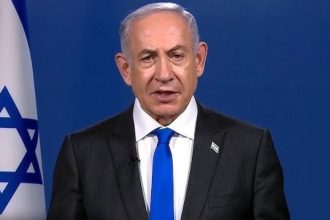ISLAMABAD: Adviser on Foreign Affairs Sartaj Aziz said on Wednesday that growing China-Pakistan ties were not against any other country and Pakistan was simultaneously promoting relations with all major regional and world powers.
“Cooperation between Pakistan and China is focused on economic development through connectivity and is not against any other country. Pakistan seeks to establish and sustain long-lasting and mutually beneficial relationships with global and regional players in Asia,” Mr Aziz said at a seminar.
Pakistan has been China’s longstanding strategic ally in the region. The two countries have recently made great strides in deepening this cooperation. The China-Pakistan Economic Corridor launched in April this year during President Xi’s visit is being seen as the launching pad for the next phase of Sino-Pak relations.
India has been vocally opposing the CPEC project.
Idea of shared regional leadership involving main countries of the region floated
The new phase in relations with China has also brought its own challenges with respect to relations with other countries in East Asia, particularly South Korea, Japan and Asean states. China’s relations with South Korea and Japan have been marred by maritime territorial disputes and historical legacies from the World War II. China and Japan dispute the sovereignty of the Diaoyu/Senkaku Islands, while Japan and South Korea have their problems over Dokdo/Takeshima Islands. Meanwhile, the United States is reasserting it presence in the Asia-Pacific to counter China’s rise.
“Pakistan has the distinction of forging and maintaining Strategic Dialogue with both the US and China. We have vibrant and robust relations with another power in the region, i.e. Russia. From Pakistan’s perspective, China together with the United States and Russia, are important pillars in the newly emerging economic and security order of the region,” Mr Aziz said.
He regretted that “some countries” were trying to cause a distraction in the implementation of CPEC.
“India’s loud objections to CPEC and its attempts to gain support of elements hostile to Pakistan in the region are ill-advised,” he observed.
About normalisation of ties with India, he said Pakistan continued to support normalisation, but such a thing should be done with “respect and dignity”. He also asked India to reciprocate Pakistan’s peace gestures.
Mr Aziz floated the idea of shared regional leadership involving main countries of the region instead of just one being propped up as a regional hegemon.
“The most viable option for peace and stability in Asia-Pacific is a form of shared regional leadership that is inclusive not only of the major powers but also of other key players in the region,” he suggested.
He also called for resolution of “territorial and border disputes in the region”. Unresolved disputes and politics of ‘re-balancing’, he warned, could lead to a ‘new cold war’ here.





